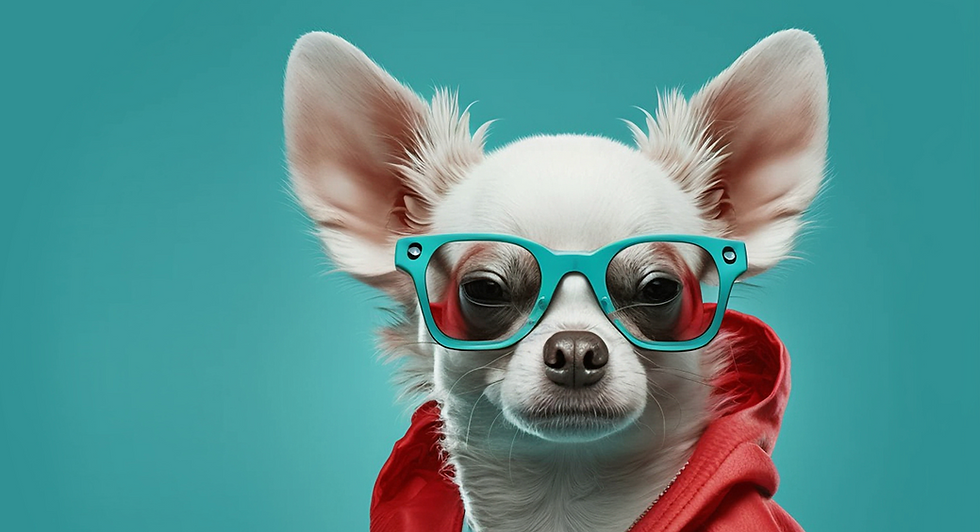Why Roblox's Announcement A Few Hours Ago Changes Everything,
- Kirra Pendergast

- May 16
- 3 min read

A few hours ago Roblox launched real-world shopping inside its platform and it’s going to change how young people interact with products, brands, and each other in ways the industry hasn’t fully reckoned with yet. Roblox is now a shopping mall, a social playground, and a marketing platform all rolled into one.
The announcement may seem like just another tech update. But for your child, it changes everything.
Now, kids can:
Browse branded virtual stores.
Buy real-world items (lip gloss, toys, clothes, movie tickets).
And unlock exclusive avatar rewards all without leaving the platform.
For brands, this opens the door to next-gen commerce: a direct path to Gen Alpha and Gen Z through gamified, immersive brand experiences. But with this opportunity comes a new layer of responsibility because the lines between play, identity, advertising, and influence just got blurrier than ever. In a world where young people are growing up online before they’ve fully grown into themselves, brands face a reckoning. It’s no longer enough to simply “target” kids or teens. Ethical brands the ones who say they care about mental health, inclusivity, and the future must now ask harder questions.
The Opportunity and The Risk
Roblox frames it as a virtual mall. We see something more complex:
97.8 million daily users — a significant portion under age 13
A culture where social status is tied to digital appearance
Real-money transactions now shaping social dynamics inside the game
Brands becoming part of identity formation and peer hierarchy in childhood spaces
This isn’t just product placement. It’s psychological and child safety territory and brands are entering at high speed, often with no ethical framework in place.
What Ethical Brands Need to Ask, And Why Parents Should Be Asking Questions of Brands
In a world where young people are growing up online before they’ve fully grown into themselves, brands face a reckoning. It’s no longer enough to simply “target” kids or teens. Ethical brands, the ones who say they care about mental health, inclusivity, and the future, must now ask harder questions.
Questions like:
Are we engaging, or are we exploiting?
Because every campaign, every filter, every branded experience leaves an imprint on a young person’s sense of self.
Are we building presence that empowers, or pressures?
Because the line between influence and manipulation gets thinner with every scroll.
Are we reinforcing appearance-based value systems, or expanding what kids believe is possible for them?
Because too many children are learning to view their worth through someone else’s lens.
Are we creating experiences that include or exclude?
Because social belonging, especially in digital spaces, isn’t a bonus. It’s survival.
And perhaps most urgently: Who is responsible for the emotional and developmental impact of what we build?
Because even if you didn’t mean harm, if you didn’t ask this question, you might be part of the problem.
The Good News You Don’t Have to Sit This One Out
You just have to do it better. And that’s where we come in.
We’re not anti-digital. We’re not anti-brand. We’re anti-exploitation.
We partner with organisations who want to build trust, not just traction. Because digital trust isn’t a trend. It’s the new baseline for how brands should behave.
What Parents Should Be Asking of Brands on Roblox
If brands are going to meet your child inside a game, in the spaces where they laugh, play, build friendships, and experiment with who they are, then you have every right to ask more of those brands.
You should be asking:
Is this brand treating my child like a consumer, or a developing human being?
Are they offering genuine value? or manufacturing desire to drive clicks and conversions?
Do they understand the power they hold in shaping identity, self-worth, and social belonging?
Are they designing experiences that lift all kids up? or reward only those who can pay to participate?
And most importantly.....who inside this company is thinking about the emotional and developmental impact of what they’re building?
Because if they’re not answering these questions, they don’t deserve your trust, or your child’s attention.
This isn’t about banning technology or demonising brands. It’s about setting a higher bar.
For every company rushing to plant a flag inside Roblox, the message from parents should be clear:
If you want to show up in my child’s world, you better show up responsibly.





Comments